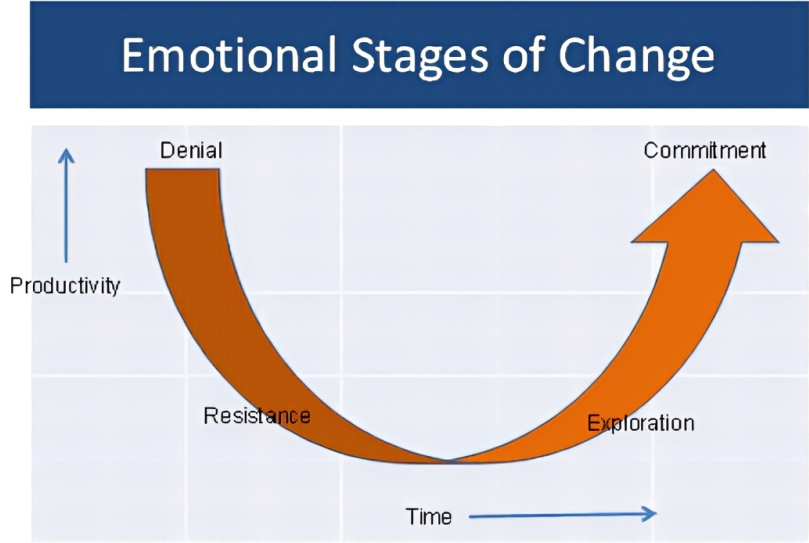Five-Stage Leadership Conversation Model
The Five Conversations Framework is effectively a replacement for the traditional performance review system. It consists of five, ten minute conversations between managers and their staff over six months. These conversations are:
- Climate Review conversation
- Strengths and Talents conversation
- Opportunities for Growth conversation
- Learning and Development conversation
- Innovation and Continuous Improvement conversation
Organisational Impact of the 4C Change Model
The Corporate Culture Change Cycle (4C) offers a fresh, people-focused alternative to traditional change processes. Before exploring the specific advantages, it’s important to understand how the 4C model stands out in driving meaningful and lasting transformation within your organisation:
- The 4C uses a bottom up approach to change unlike most change approaches that uses a traditional top down approach which means that it generates more ‘buy-in’ from staff so that you can feel a sense of assurance that it will lead to sustainable behaviour change.
- Unlike most change processes, the 4C is based on changing people’s thinking rather than their behaviour which means that it is likely to lead to permanent behaviour change so that you can feel you are getting value for money.
- The 4C is a totally unique change process which means that your competitors will not be exposed to the same approach so that you can feel confident that you are a step ahead of your competitors.
- The 4C approach benchmarks your organisations culture change progress towards the development of a new employment relationship which means that you can monitor your progress in a meaningful way so that you can feel a sense of assurance about moving in the right direction towards developing a productive workplace culture.
- The 4C has an impressive track record with clients which means that it is tried and proven so that you can feel confident about its implementation in your organisation.
Why Invest in a Modern Workplace Culture?
Building a strong workplace culture offers tangible business benefits that directly impact performance, growth, and long-term success:
- Retaining talented employees, which reduces overhead costs in recruitment, selection, training, and preserves corporate memory.
- Attracting high-caliber employees, which enhances your human capital and creates a distinct competitive advantage.
- Developing a more flexible, committed, customer-focused, and engaged workforce, which improves overall business performance.
- Enhancing customer responsiveness, which leads to increased repeat business.
Change Management
We are different from most organisations when we deal with change in organisations. Most approaches are obsessed with strategy and processes. Although these are important, we elieve the the most critical issue is dealing with the emotional stages of change.
Our work is based on Scott and Jaffe’s change model. Our approach acknowledges that there are four emotional states that are predictable in any change – denial, resistance, exploration and commitment. By managing these emotional states in your people effectively, you will most likely deal with this effectively. Our approach prioritizes the people side of change—often the most overlooked and poorly managed area.

Leadership Development
We design and facilitate a wide variety of leadership development programmes. Our point of difference is that we are in the business of changing people’s thinking first and behaviour second. by changing people’s thinking, we can sustainably change people’s behaviour. We are strong advocat for adaptive leadership practices which are in keeping with the times of accelerated change and uncertainty. We don’t do off the shelf programmes. Our programmes are specifically designed to met the needs and interests of the managers we are working with.
